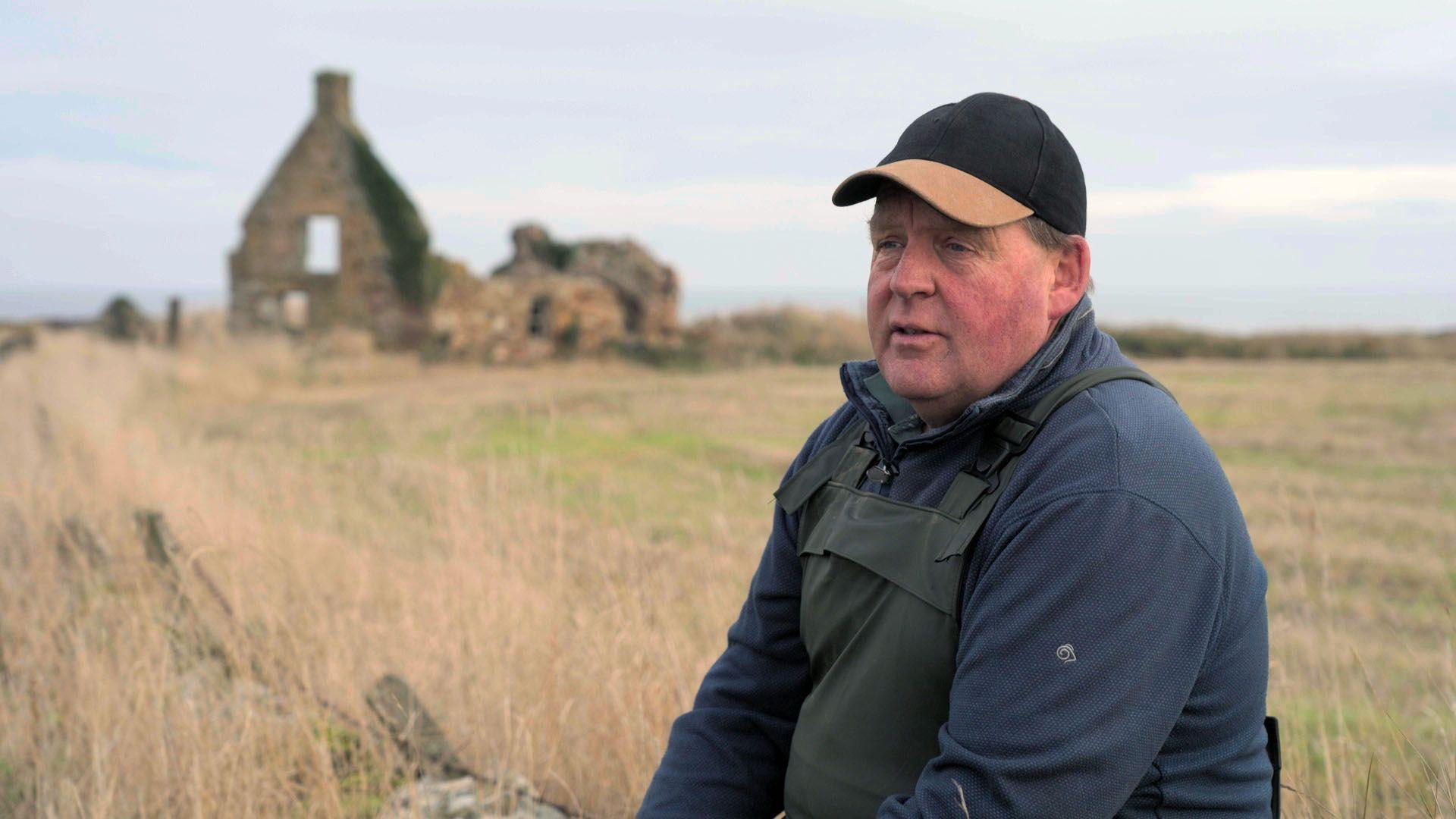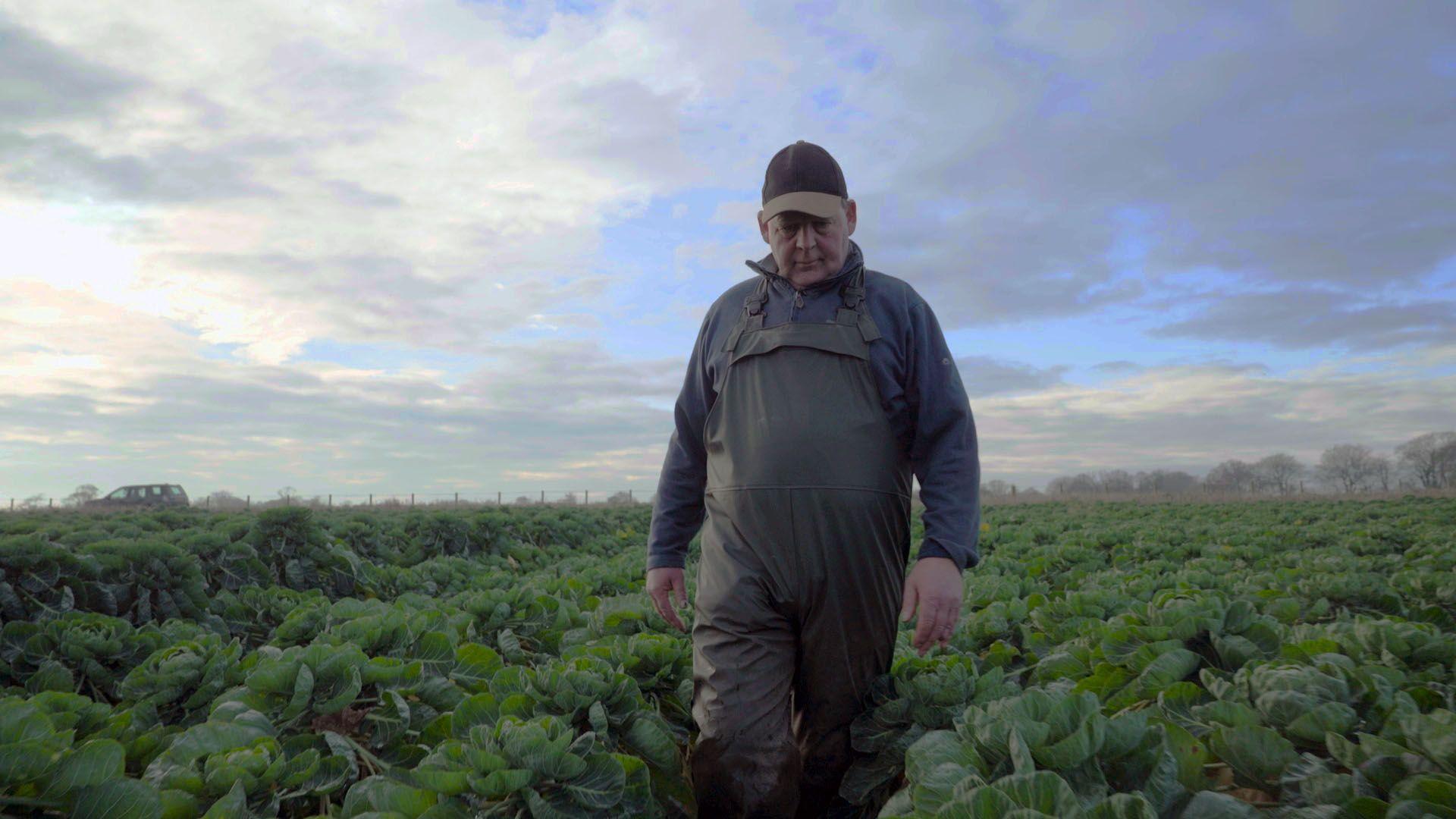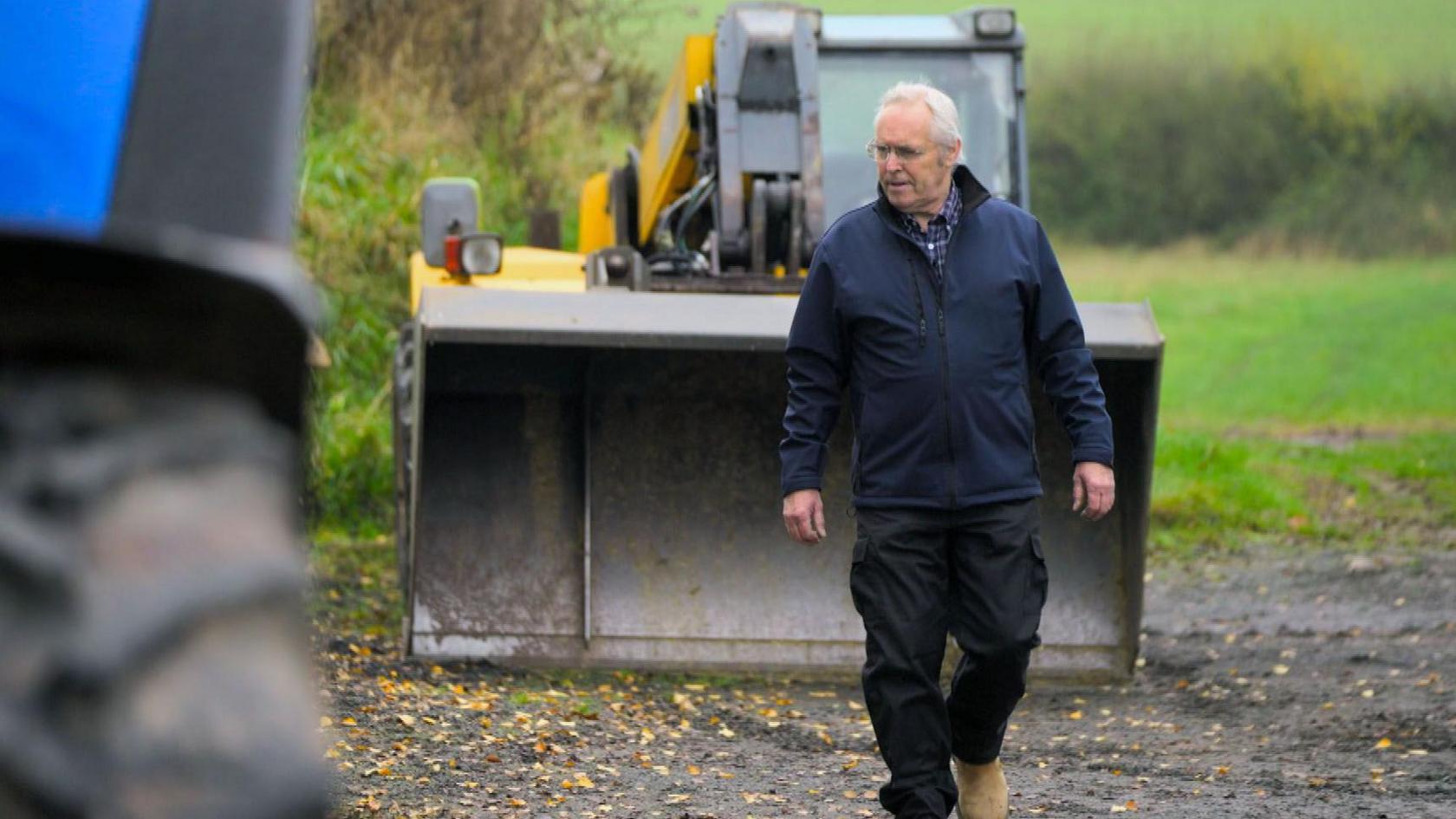I paid scammers thousands thinking they were my farm suppliers

Alan Steven lost £16,000 after being duped by fake invoices
- Published
Farmer Alan Steven had no reason to doubt that the invoices he received from his suppliers were genuine.
They looked the same as his usual emailed invoices with just one difference - the bank details at the end were different.
Alan, who runs a farm near St Andrews in Fife, went on to pay a building contractor £12,000 and a grain merchant £16,000.
But it wasn't until one of his genuine suppliers started chasing him for payment that he realised he had been the victim of a sophisticated fraud.
The scammers had hacked into his email account and cloned genuine invoices before swapping in their own bank details.
"We're working with a new contractor for some concreting in the yard and building works," Alan said, adding that he'd received an email asking him to pay so the contractor could buy materials.
"That was £12,000. The quote all looks the same, but they've changed the bank details at the bottom,” he said.

Alan Steven grows a mixture of crops from brussels sprouts to wheat
Alan, whose family grow a mixture of crops from brussels sprouts to wheat, said: "It's like anyone farming, you're doing something outside, then you've got a bit of time. I need to pay some bills. I want this work done.
“I’m not technically savvy. We're pressurised. We're not office people. Just ourselves doing admins.”
Alan got some of the money back after contacting his bank and claiming insurance, but he lost £16,000.
“Completely gutted,” he said. “You're out of pocket. You're never going to see that money back again. Basically, it was the equivalent of your year's wages you've lost.
“I've suffered from depression in the past, and obviously, you know you're trying to be positive. But you can't just forget about it.”
Countryfile has been investigating the scams that target farming communities for the BBC’s Scam Safe Week.
Alan isn’t alone in falling for fake invoices. Last year, about £50m was lost to invoice scammers, with 80% of the frauds beginning with an email.
There are no precise figures for invoice fraud within the farming community itself, but Countryfile asked Action Fraud, the national fraud reporting centre, to cross-check their most recent reports for scams involving farms and invoices.
In 2022, they had 35 such reports and in 2023 they had 54 – an increase of more than 50%.
Thousands of farmers protest against inheritance tax changes
- Published19 November 2024
Farmers 'at war' with countryside crime gangs
- Published26 June 2024
Those figures echo what agricultural insurer Kyle Lomas has witnessed.
He is seeing an increasing number of farmers being scammed, with just 1% to 2% of all claims being paid in relation to fraud in the past.
"In the last two to three years, we've seen that go threefold, so we're now paying 9% to 10%,” he said.
He believes the size of many farms makes them more vulnerable.
“It's a lot of one-man bands and they're having to farm," he said. "They've got so many pressures on.
"You know, farming covers so much, and then to be an IT savvy person on the internet is probably maybe a stretch.”
He warns that the impact of being scammed can be huge.
“The sums can run into tens of thousands in one transaction," he said. "So that's how serious it could be.
"Some farms only make £10 -20,000 profit in a year. So that can wipe out the whole profit for a number of years for a farmer and could be the end of that farm.”

Rob Alderson was scammed out of £6,200 he thought he was paying for farm equipment
Rob Alderson was caught out at one of his busiest times. His family have been farming near Ludlow in Shropshire for over a century, with arable crops and livestock on their 420 acres.
“It was at the peak of harvest," Rob said. "I had a busy day, sat down, looked on the internet, I spotted on the Facebook page there was a machine which I thought, if I can get that down here, that will help me this autumn with the loading of the grain.
"The price was very much middle of the road. We're talking between £6,000 or £7,000 pounds."
The seller was convincing, sent photos and a video, and claimed the vehicle was in Scotland. There was no way Rob could spare the time to go that far to view it.
"The questions I was asking him, it was leading me to believe he was looking at the machine outside his office," he said. "I was hooked."
As soon as he paid £6,200, the scammer disappeared. Rob eventually got his money back from his bank.
“It was embarrassing, and then it becomes depressing," he said. "You've just given a quantity of money to somebody you don't know, and you've got nothing back in return."
Facebook Marketplace
A recent investigation by TSB found that more than a third of Facebook Marketplace listings could be fraudulent, external, with the estimated annual loss to customers reaching nearly £60m.
Countryfile also investigated and quickly found a series of dubious adverts on Facebook Marketplace. We responded to one of the adverts, which claimed to be selling a small tractor for £4,400.
We quickly identified that the pictures in the Facebook advert had been taken from a genuine advert from a reputable farm machinery dealer. They were advertising the tractor for a much more realistic £23,250, and confirmed they still had the tractor in question.
After we contacted the scammers, they diverted us away from Facebook to an email account.
They told us that while we couldn’t inspect the vehicle because it was in a warehouse, once we’d paid by bank transfer they’d courier the tractor to us and we’d have five days to change our mind and get a full refund.
They gave an address which is inside a secure part of a docks complex, meaning people couldn’t visit to check them out.
They had also stolen the name of a genuine company, and created a fake website in its name. When we called them up and tried to put our evidence to them, they repeatedly denied being scammers.

Alan Steven runs a farm near St Andrew's in Fife
Meta, which owns Facebook, did not respond to a BBC request for comment.
Arun Chauhan is a lawyer and an expert on fraud. We asked him about the gangs running these types of scams.
He said: “If you think about it, this is a business profession. You have organised crime gangs.
"You have people who just spend their entire day honing their skills on how to dupe people.
"And when they know that a method is working, they're just going to keep perpetrating it, and others will jump on that bandwagon as well.”
He says 40% of all crime in the UK is fraud or cybercrime, but only 1% of the policing budget is used to tackle it and feels that needs to change.
Slick scams
Dr Kreseda Smith is a rural criminologist from Harper Adams University in Shropshire. She’s looked at the impact scams can have on farmers.
"Research that I've done in the past with farmers, looking at how crime affects their mental health, has indicated that this can range anything from anxiety, paranoia, lack of sleep, right through to the extremes of suicidal behaviour," she said.
“It's important not to think that you're an idiot for falling for this. Criminals are clever, and some of the scams they perpetrate are slick.
"Criminals have a good idea of the agricultural calendar. So they know harvest time is a great time to try."
She also said the criminals behind these scams adapt their tactics quickly.
“The recent Budget is very front and centre of farmers minds at the moment, and I think criminals are aware of that," she said.
"And I think this whole issue around inheritance tax may raise the opportunity for criminals to perpetrate some kind of scam, whether it's a way of helping farmers to reduce their liabilities, or some other form. That is a potential."
Countryfile is broadcast on BBC One at 17.20 and will be available on the iplayer